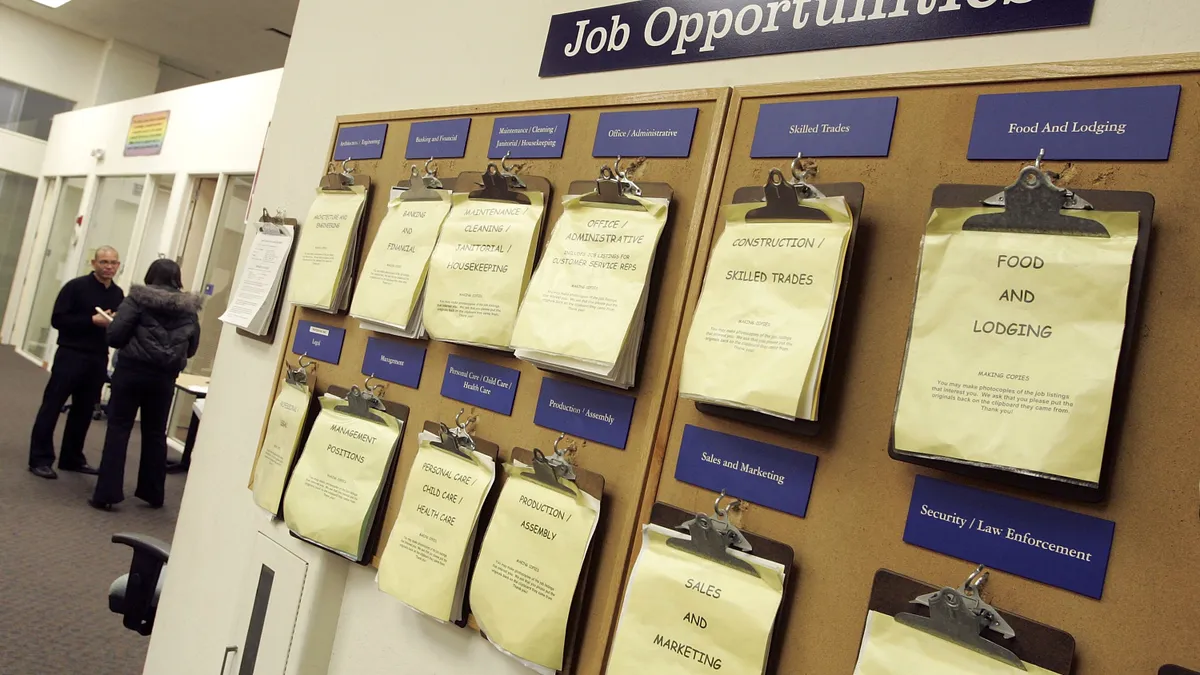Dive Brief:
- Of senior managers surveyed between November 11, 2021, and December 30, 2021, by Robert Half, 65% plan to add new, permanent jobs in the first half of 2022. That share is 14 percentage points higher compared to six months ago, Robert Half said.
- One-third of senior managers expected to fill vacant positions during the same timeframe, and 71% said they expected to hire more contract professionals this year. Among cities represented in the survey, San Francisco, Detroit and Charlotte, North Carolina, had the three highest percentages of employers planning to add permanent jobs.
- Pay increases were a popular recruiting strategy, with 55% of respondents saying their organizations increased starting salaries and 44% pointing to signing bonuses. Half of respondents were offering workers remote options. Fewer were providing additional paid time off or loosening requirements around education or skills.
Dive Insight:
The high demand has been exacerbated by a nationwide worker shortage. A strong majority of local chamber of commerce leaders said in a December U.S. Chamber of Commerce survey that businesses found it difficult to hire new workers. A Chamber analysis of federal data further showed fewer than one worker available per job opening nationally.
That scarcity is contributing to skill shortages; 83% of organization respondents in a Association for Talent Development survey said they were facing a skills gap in their workforces, and 78% said they expected future gaps. Particularly impacted skills included leadership, critical thinking, problem solving, managerial skills and communication, ATD said.
Compensation and benefits strategies have been a common refrain for observers of the current market. Employers in a variety of industries have experimented with new offerings. Kohl's, for example, last month became one of several retailers to cover educational costs, such as tuition and books, for workers. Pay increases also are on the horizon for employers this year, but a recent WorldatWork poll found that compensation professionals may not be aligned with other executives on the level of increases necessary to retain and attract talent.
Beyond new benefits, some have encouraged HR teams to look inward. A January analysis published by consulting firm Gartner said employers may need to improve access to internal job openings, including via electronic pathways. HR teams also can guide managers to support employees as they seek potential career paths and roles, Gartner said.
Labor shortages will have other implications, however, as employers adopt technologies and processes in response to a lack of workers. Grocers, for example, are being tasked with determining the future role of human employees as adoption of automation solutions takes off during the pandemic, Grocery Dive reported.













